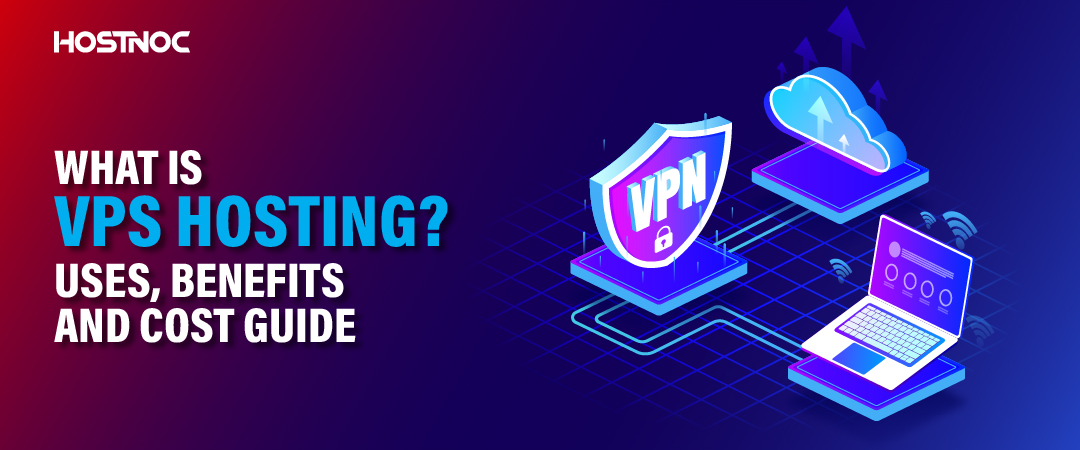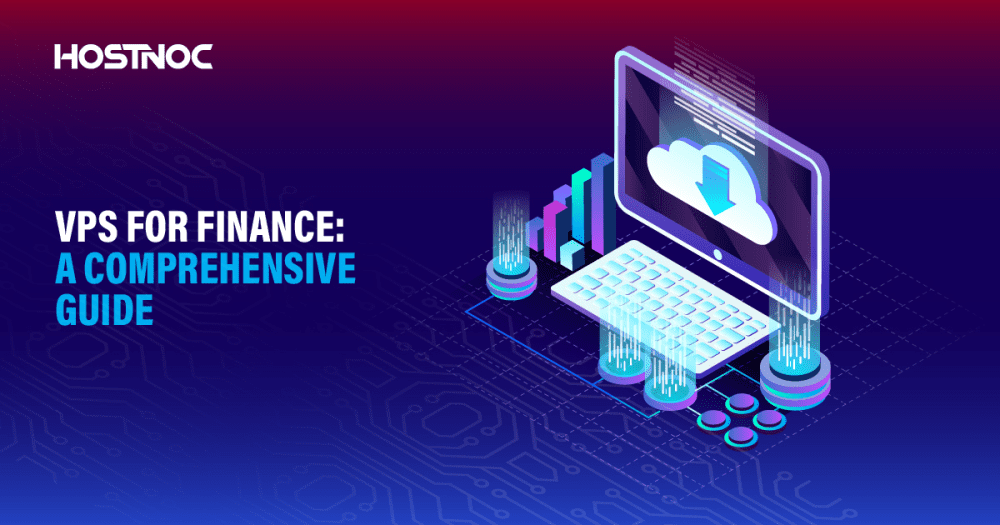Blogs

What is an Unstoppable Domains and Why You Should Use Them?
April 22, 2022
Stop Guessing: 5 Smart Ways To Find the Owner of a Website
May 13, 2022What Is VPS Hosting? Why Experts Recommend It in 2026
If your website has outgrown shared hosting but you are not ready for the cost of a dedicated server, VPS hosting might be the perfect middle ground. It is a powerful alternative where a website is hosted in a virtualized environment that offers many of the advantages of a dedicated server, at a fraction of the cost.
It provides better performance, security, and scalability, ideal for businesses, developers, and high-traffic sites. If you’ve ever wondered what is VPS hosting and how it compares to other types, check out our comparison of Dedicated vs VPS Hosting for guidance on choosing the best fit.
If your website has outgrown shared hosting but you are not ready for the cost of a dedicated server, VPS hosting might be the perfect middle ground. It is a powerful alternative where a website is hosted in a virtualized environment that offers many of the advantages of a dedicated server, at a fraction of the cost.
It provides better performance, security, and scalability, ideal for businesses, developers, and high-traffic sites. If you’ve ever wondered what is VPS hosting and how it compares to other types, check out our comparison of Dedicated vs VPS Hosting for guidance on choosing the best fit.
- 1. What Is VPS Hosting?
- 2. What Is a VPS Server?
- 3. How Does VPS Hosting Work?
- 4. What Is VPS Hosting Used For?
- 5. Types of VPS Hosting
- 6. What Is Cloud VPS Hosting?
- 7. VPS Hosting vs Other Hosting Types
- 8. Advantages of VPS Hosting
- 9. Disadvantages of VPS Hosting
- 10. How Much Does a VPS Cost?
- 11. How to Host a Virtual Private Server?
- 12. When to Upgrade to VPS Hosting?
- 13. How to Choose the Right VPS Hosting Provider?
- 14. Pros and Cons Table
- Conclusion
1. What Is VPS Hosting?
A Virtual Private Server is a hosting type where a physical server is divided into multiple isolated virtual machines. Each VPS behaves like its own dedicated server, with allocated CPU, RAM, storage, and bandwidth. This ensures more stable performance and control than shared hosting. Learn more about our Virtual Private Server infographic if you’re still unsure what is VPS hosting and how it works in detail.
2. What Is a VPS Server?
A VPS server is a virtualized environment created through virtualization technology (hypervisor), partitioning a physical server into multiple independent virtual servers. Each has dedicated resources, CPU, RAM, and storage, ensuring isolation between users. This delivers reliable performance on shared infrastructure.
3. How Does VPS Hosting Work?
Here is how VPS hosting works.
- Physical vs Virtual Architecture:
A single physical server runs multiple VPS instances via a hypervisor layer.
- Isolation:
Each user operates independently; actions on one VPS don’t affect others.
- Dedicated resources on shared infrastructure:
You get reliability and performance similar to dedicated hosting without the cost, exactly why people researching what is VPS hosting often find it a great balance.
4. What Is VPS Hosting Used For?
Many users who explore what is VPS hosting are surprised by its flexibility. It’s perfect for:
- Hosting websites and multiple domains
- eCommerce stores with secure payment gateways
- Remote desktops and virtual workstations
- Game servers (PUBG, Minecraft, CS:GO) are great for stability and control
- Running applications, databases, and development environments
Learn more via VPS Hosting for WooCommerce Stores and our Forex VPS Server.
5. Types of VPS Hosting
Managed VPS Hosting
The service provider handles setup, security, updates, and maintenance. It is ideal for beginners or businesses without technical staff.
Unmanaged VPS Hosting
You have full control but also full responsibility from setup to security, maintenance to updates. Unmanaged VPS hosting is ideal for developers and sysadmins with technical expertise.
6. What Is Cloud VPS Hosting?
Traditional VPS runs on a single physical server; Cloud VPS is hosted across a distributed cloud infrastructure. It offers better scalability and uptime thanks to redundancy and flexibility, especially for those who already know what is VPS hosting and how to manage servers effectively.
Read more: What Is Cloud VPS? and VPS vs Cloud Hosting.
7. VPS Hosting vs Other Hosting Types
Compared to shared hosting, a virtual private server offers:
- Superior performance and stability
- Greater security
- Root access and customization
- Scalability at a reasonable cost
People exploring what is VPS hosting is often realize it delivers much of the control and performance of dedicated servers but at a much lower cost.
Explore Bare Metal Server or Virtual Server.
Cloud hosting excels in scalability and redundancy. A Virtual Private Server gives more control and predictable pricing. Choose based on your needs for flexibility and control.
8. Advantages of VPS Hosting
Here are some of the advantages of virtual private server hosting.
- Improved uptime and reliability via dedicated resources
- Root access and customization
- Enhanced security through isolation
- Scalable resources and easily upgradable
- Cost-effective compared to dedicated hosting
9. Disadvantages of VPS Hosting
Even if you understand what is VPS hosting, there are a few drawbacks:
- Requires technical knowledge, especially in unmanaged environments
- Risk of misconfigurations causing security or performance issues
- Higher cost than shared hosting
10. How Much Does a VPS Cost?
Costs vary widely. VPS plans generally range from $5 to $500 per month, depending on resource levels, provider, and plan type. Managed options like Bluehost start around $46.99/month (introductory price).
Factors affecting cost:
Here are some of the factors affecting cost.
- Managed vs Unmanaged
- CPU, RAM, and Storage
- Data Center Location
- Provider Reputation
To get a detailed breakdown and real pricing comparison, check out this guide: How Much Does a VPS Cost?
11. How to Host a Virtual Private Server?
Here are the steps to follow once you know what is VPS hosting:
- Choose your operating system (Windows and Linux)
- Set up a web server (Apache and NGINX)
- Configure DNS and SSL
- Secure, monitor, and maintain your virtual private server (firewall, updates, and backups)
12. When to Upgrade to VPS Hosting?
Here are some of the warning signs that indicate it is time to upgrade to VPS hosting.
- Frequent traffic spikes are impacting performance
- Resource bottlenecks on shared hosting
- Need enhanced security, speed, or compliance
Upgrading to VPS offers better control, performance, and scalability.
13. How to Choose the Right VPS Hosting Provider?
Consider performance, uptime service level agreement, support quality, managed vs unmanaged, provider reliability, and reviews. Explore our VPS Server service for tailored solutions.
14. Pros and Cons Table
| Pros | Cons |
| Better performance & security | Higher cost than shared hosting |
| Scalable resources | Requires technical knowledge |
| Root access & customization | Risk of misconfigurations |
Conclusion
VPS hosting is a future-proof solution that bridges the gap between shared and dedicated hosting. It offers improved performance, flexibility, and control, without the dedicated server price tag. Whether you are running an eCommerce site, game server, or development environment, VPS is a smart, scalable choice.
Frequently Asked Questions About What Is VPS Hosting
What is VPS?
VPS stands for Virtual Private Server, a virtualized server within a physical server, providing isolated resources and dedicated performance to each user.
What is VPS hosting used for?
VPS hosting is used for:
- Hosting multiple websites
- Storing and managing business or customer data
- Running web servers, emails and databases
- Developing cloud services and remote workstations
What is VPS hosting?
A hosting service offering virtualized servers with dedicated resources and greater control compared to shared hosting.
What are the advantages of VPS hosting?
Some of the advantages of VPS hosting are:
- Improved performance and uptime
- Enhanced security
- Greater flexibility and control
- Cost-effective compared to dedicated hosting
What is the difference between VPS and shared hosting?
VPS offers many of the benefits of dedicated hosting but in a partitioned, cost-effective form.
Why should I upgrade to VPS hosting?
Consider upgrading to a virtual private server if your website is outgrowing shared hosting, especially for more demanding needs like secure payment processing or increased traffic.
How much does a VPS cost?
Generally ranges from $5 to $500+ per month, depending on resources and management level.
Can I host a website on VPS?
Virtual Private Server is excellent for hosting websites including high-traffic or secure platforms.
Is VPS hosting good for gaming servers?
VPS offers the necessary resources, stability and control for game hosting like PUBG or Minecraft.
M Ali
Featured Post
VPS for Finance: A Comprehensive Guide
Technology plays a crucial role in enhancing the speed, security, and reliability of trading systems. One of the most important tools for traders, analysts, and financial […]
VPS for Gaming: The Ultimate Guide
Lag, random crashes, and strict limits from shared hosting can quickly ruin an online gaming session—especially when you’re trying to host a private server or grow […]
VPS for Media: A Comprehensive Guide
A Virtual Private Server, or VPS, powers modern media workflows. Media brands depend on fast delivery. Video creators need stable performance. Audio streaming platforms require zero […]












